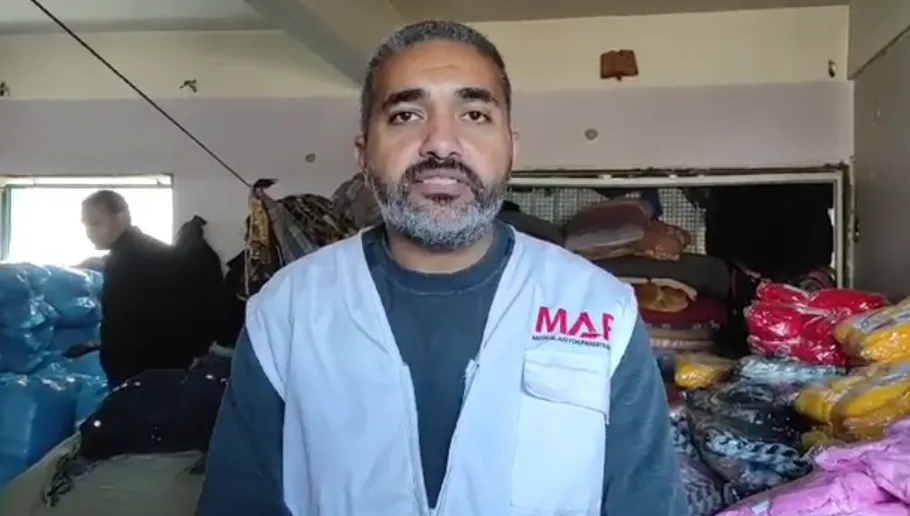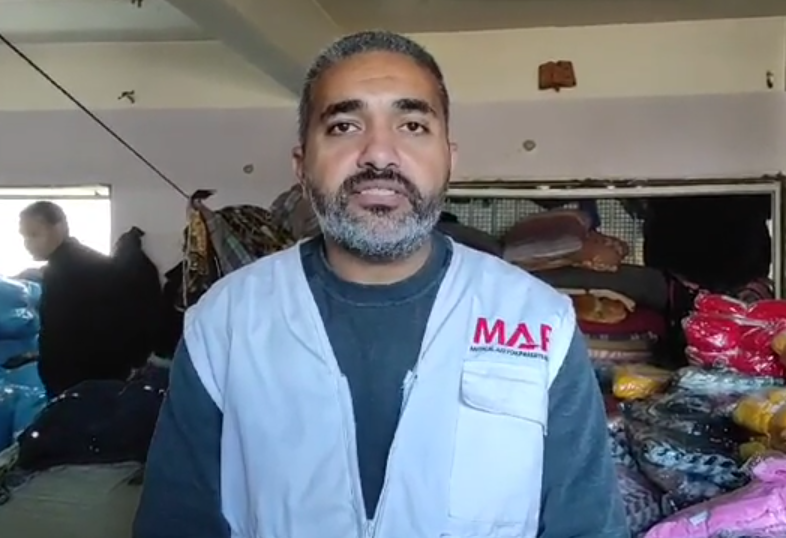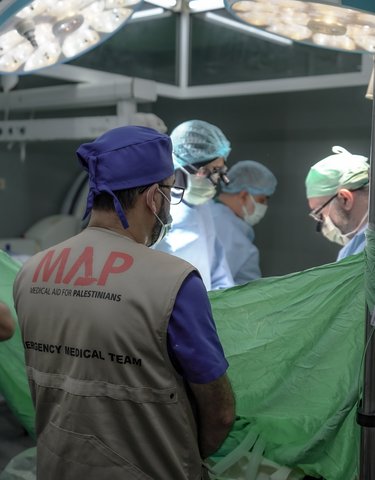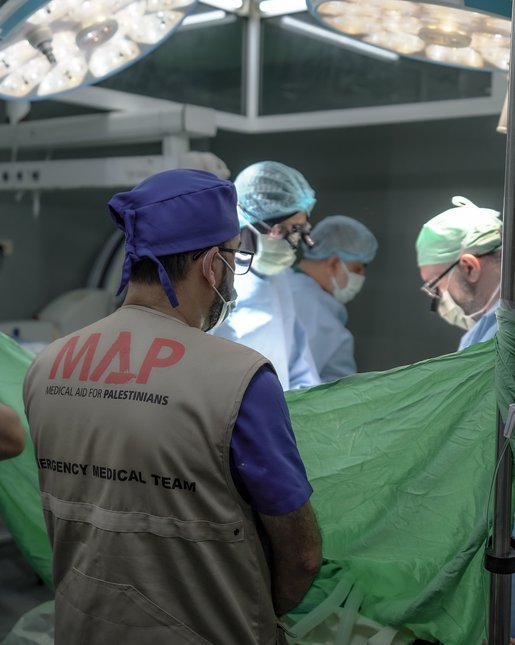“This war has taken everything from us, even our dignity”
30 May 2024


Before the war I used to love spending Saturdays with my family, they were special days for all of us. We would all pile into the car, me, my wife and three children, and go and buy breakfast to eat at the beach, whatever the children wanted. I would then get lunch for everyone – Gaza has amazing food – and we’d spend the rest of the day playing with the kids, maybe watching a TV show or a film, doing errands, and resting. All of this is now gone.
On Saturday 7 October, I was woken up at 5am by the sound of rockets. The amount of fire was so immense that I couldn’t go back to sleep. That Saturday my family and I were glued to the TV, but this time it was because we saw there was going to be a war and we wanted to know what was happening. I thought I might take them to the supermarket to get supplies but, due to the confusion, we sadly decided to stay at home. Ever since then, life has turned upside down.
I live in the north of Gaza, in Beit Lahia. I have been displaced three times since the start of the war. Unlike many others, I did not leave for the south following Israel’s evacuation orders. I have my dear parents here and they are very old. They would not be able to handle the long journey, the walking, or passing through dangerous checkpoints. Like every Palestinian in Gaza, my family is suffering through this war. We have been divided and have no chance to see each other.
Although I was displaced, I did manage to return to my home temporarily. Our house was partially destroyed by Israeli military attacks, but we tried to fix it to keep living there. But in the last few weeks I have been displaced again, to Gaza City. The journey of terror and displacement is beyond words.
I have been told that the area where I live has been 90% destroyed, so I felt somewhat fortunate I still had somewhere I can stay with my family – somewhere that is ours. I am not sure if our home is still standing now though.
There are so many internally displaced people in northern Gaza, who are forced to live in temporary shelters, schools or tents. Through my work with MAP, I distribute hygiene and dignity kits to many of these people, and I see how dire and difficult the conditions are. Some classrooms inside schools may have more than five families living in them, crammed in together. The corridors are full of tents and people are even sleeping on the stairs.
I was relieved when I was able to start working for MAP again after the start of the war and filling my days of the war by helping others. My days are so busy now as there are so many people in need.
In the last few weeks I have been displaced again, to Gaza City. The journey of terror and displacement is beyond words.
Everything about life here is difficult now. There is very little electricity, gas or infrastructure, and there is nothing to do in the dark evenings. I used to enjoy staying up late, but now every night I go to sleep early and pray there will be no missiles, no airstrikes, no attacks. Almost every night I am woken by explosions, we don’t get any real rest anymore.
My children no longer have school, so they are at home all the time. Before I started working again I would walk with them to Jabaliya to collect water pumped by UNRWA (the UN agency for Palestinian refugees), as our local sources were contaminated. My son, Zakariya, who is nine years old, would help me carry the tanks filled with unfiltered water. This is a nine-year-old child who is out carrying a heavy tank of water when he should be at school or playing.
When we want to get food there is almost nothing in the shops, and what is there is hugely expensive. It is difficult to find any food with protein or nourishment for the children, particularly vegetables. We have had some food from airdrops but this isn’t enough and the food is not Halal, and though I am Muslim, I must eat it to survive. It is also hard to find any money to pay for things.
Our Ramadan this year didn’t feel anything like Ramadan. We had no proper food to share, and no family, friends and neighbours left here to share what we had. Normally I would pray in the mosque, but there are no mosques here anymore, they have all been destroyed. There was no feeling of spirituality. I am the only one from my family who has stayed in the north, all my relatives have moved to the south. I don’t even know how they are or where they are. The streets used to be filled with happiness and joy at this time of year, but now people walk around like zombies.
At MAP we work closely with local health teams, but there are almost no health facilities left functioning here, and none are fully functioning. I speak to hospital staff daily about the lack of medicines and disposable items. I hear them asking each other back and forth for things, and everyone is always having to say ‘no, we don’t have any of that’. The hospital pharmacies are empty, and the private ones are losing their supply chains.
As a member of MAP I work for the health and dignity of Palestinians. I love the word dignity – it perfectly describes Palestinians; we are people of honour and dignity. But this war has now taken everything from us, including our dignity. We have lived through months of hurtling from one hardship to another, of struggling to buy food or provide for our children, of horrible attacks and danger. There is no safety anywhere and we are unable to focus on normal things like education or careers, we worry every day about our basic needs.
Every day I am so grateful that my children and I are still alive, but I wish beyond words that there was a ceasefire today, so we can finally breathe. The thing I miss the most about life before October is security and safety. I want to see an end to the occupation and for Gaza, my home, to rebuild, step by step.
MAP’s team in Gaza were among the first to respond to the current emergency and remain one of the only international organisations working to provide humanitarian and medical services, including in the north. Please support our emergency response today.
Photo: Mahmoud Shalabi in northern Gaza.
This is the sixth of our ’Voices from Gaza’ blog series where we hear from members of MAP’s team in Gaza. Stay tuned for next week’s blog.

